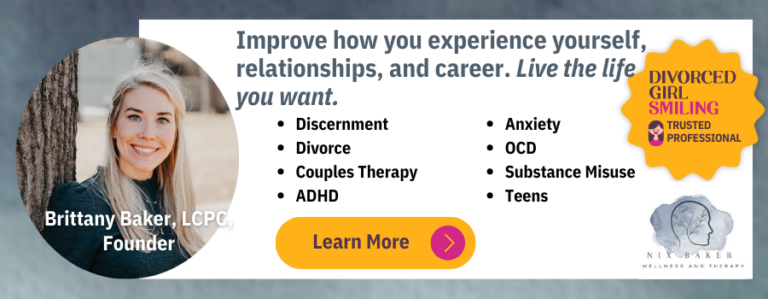How do you end a marriage with someone you love? For some, the decision is a no-brainer. But for most, this is one of the most complex and emotional decisions they will ever make. People end marriages for many reasons, but a lack of love is not typically one of the reasons.
It can be nearly impossible to stop the romantic, family, or friendly love you feel for your spouse despite the toxicity or negativity in the relationship. Love may have been one of the driving forces of the marriage, and a version of love for this other person is why you have stayed. Love between you and your spouse may exist, but it might not be enough to keep the marriage alive.
If you have decided to end your marriage and life as you know it, you need to communicate your decision to your spouse.
How do you end a marriage with someone you love?
What to consider before the conversation:
You probably have agonized over this decision for weeks, months, or even years. Write a letter or bullet points to yourself outlining your reasons and what this means for you, positively and negatively. Research shows that journaling and reflecting helps us process our feelings and thoughts and communicate them to others more effectively. Think through questions like:
- What emotions do you have about the different aspects of this decision?
- How does your life look different after a divorce?
- How are you choosing “you” in this decision?
- What considerations have you made for the other person or for your kids?
I encourage you to talk to someone else who is not emotionally invested, like a therapist. This can help you parse out your emotions, challenge perspectives, and poke holes in your narratives about your relationship and divorce. Understanding your feelings is crucial because you want to share them throughout your conversation with your spouse. This can also help you know your boundaries and areas where you must be firm.
When is the right time to end it?
There will never be a perfect time, and we can all find 100 million reasons (or excuses) to delay this conversation. I often hear reasons like,
- It’s his birthday.
- It’s the holidays.
- We have a big family vacation planned.
- My sister is having a baby (or graduating or getting married….)
There will always be something on the horizon, and we will use these events or points in time to avoid going through the pain of the conversation of ending the marriage and beginning the divorce process. Avoiding the pain prolongs the feelings and creates more suffering. Once you know and are sure of your decision, do not delay speaking to your spouse. You will not help anyone by waiting.
Logistically, you should set a time with your spouse when you can be alone. I also encourage you to talk to your spouse when you are not angry or arguing. In the middle of an argument is not a time to blurt out your decision. This will lead to much more hurt and less productive conversations.
How do you end a marriage?
This conversation will be one of the most challenging conversations to have. It is inevitable. Accept this fact. You will be nervous, sad, and escalated emotionally, BUT it is essential to be mindful of your emotional regulation no matter how the other person reacts. Pull out the bullet points or letter you wrote yourself to use as a grounding tool and to help you stay on track. You will want to be clear, concise, and unwavering but with kindness. It is a tricky balance to have a loving boundary and also not get sucked into a debate about why or why not your points are valid. Remember that a boundary is not meant to control or change another person but is meant to protect you mentally, physically, and emotionally.
What to Say:
In these conversations, sharing your emotions can be de-escalating and creates empathy and connection. An example of a great emotional statement is, “I feel so sad and nervous having this conversation with you. I know this is painful for me, and I can only imagine how painful it may be for you.”
The essential elements of these types of statements are the FEELINGS (not just thoughts) and the empathy expressed for the other person.
Softened startups are another tool you can use. You still love this person, and often, there are elements of appreciation or gratitude for the relationship or what you two have shared. A softened startup offers that acknowledgment of gratitude or appreciation and sets the boundary, offers the complaint, or delivers the news.
Example: “We have spent many years together and shared a lot, and I love you in many ways. I feel a lot of pain in telling you that I do not want to continue in this marriage.”
Accepting responsibility for your role in the relationship’s challenges can help reduce defensiveness and lead to a more productive conversation. The key to this tool is to not justify your behavior but acknowledge that it existed and impacted the relationship or your spouse negatively.
Example: “I know I have not always been the most affectionate person physically, and this has impacted you negatively.”
Again, I encourage you to be clear and concise. This is your decision. It is a tough decision, but it is based on your experiences, perspectives, and what you need. The other person may try to change your mind by offering evidence that your perspectives are not accurate or fair. If the conversation is amicable, I encourage you to hear the thoughts, offer validation or empathy, and continue to express your loving boundary. Ask open-ended questions about their feelings or thoughts about your decision, but maintain the boundary.
Example: “You are right. I may not have seen how you tried to ____________. I can see how much pain this is causing you. However, this is the right decision for me at this point, and I understand if you need time to process this information. I would like for us to pick a time to discuss how we move forward.”
What not to say:
There are so many ways to approach this conversation, and there is not one “right way” to handle it. However, some communication missteps could derail the conversation to a point that is difficult to repair or continue amicably:
- Criticisms: While I am sure there is a list of issues you could rattle off to your partner, this will not be helpful in this conversation. When one feels criticized, they either become defensive, criticize you, point fingers, shut down, or try to barrel over your boundary. If you want to be heard and taken seriously, your best bet is to avoid using name-calling, “you” statements, definitive language (always, never, etc), or negative judgments or assumptions. With this in mind, listing your frustrations with the relationship may not be necessary.
- Over-explain: Our partners may ask why over and over. You can utilize “I feel___ because of _______” statements to offer complaints. However, you must judge if this is the time and place to review your concerns. My guess is that you have talked about your concerns over and over. It may not lead anywhere productive. If there are new concerns (i.e., an external relationship you will pursue), this may be fair information to share. Generally speaking, you do not need to over-explain a decision you feel is necessary for you. Over-explaining can invalidate your position.
- Blame others: This is your decision. If you want your decision to be respected and taken seriously, you have to make it clear that this was your decision. I also encourage you to not come in hot blaming your partner for this decision.
- Become defensive: Defensiveness comes in many different forms. If your loved one starts criticizing, blaming, name-calling, or telling you all your wrongdoings, it will be challenging to not respond defensively or shut down. However, the antidote is to be mindful enough to accept responsibility where it is appropriate and to validate their emotions.
Takeaway
This conversation requires a lot of bravery, honesty, vulnerability, and self-regulation. Love is an important aspect of a relationship, but many other elements keep it healthy and afloat. Communication is a dance. You can help shape the conversation by understanding your position and using concrete communication skills to show empathy, express emotions, set boundaries, and reduce defensiveness. Acknowledge that the grief and sadness are real with this decision and conversation, but keep in mind your goals for your life and what you may gain from moving forward with divorce. Take this experience and allow it to help you to grow as an individual.
Like this article? Check out, “Are You a Victim of Emotional Abuse?”

As a seasoned therapist and founder of Nix Baker Wellness and Therapy, I am passionate about building a safe, supportive, individualized, and meaningful experience for clients. I want you to feel seen and understood. Therapy starts with creating a strong relationship, continues with building skills that work for your life and meet your needs, and evolves by integrating your past and present to recognize patterns in your life to create lasting positive change.
I am a Licensed Clinical Social Worker and an integrative therapist with over 10 years of experience. I draw from different modalities to create individualized treatment plans for each client. My expertise includes Cognitive Behavioral Therapy (CBT), Dialectical Behavior Therapy (DBT), Motivational Interviewing (MI), Emotion Focus Therapy (EFT), Attachment Therapy, Gottman Method, Solution Focused Therapy, Supportive Parenting for Anxious Childhood Emotions (SPACE), Executive Functioning Coaching, and Strength Based Therapy.
I have extensive experience working with diverse groups of people struggling with anxiety, depression, ADHD, traumatic events, life transitions, substance misuse/abuse, parenting issues, and relationship challenges. I attended the University of Texas at Austin as an undergraduate and completed the Master of Social Work Program at the University of Southern California. I received clinical training and practiced at high-quality teaching medical facilities in the Houston Area. I am a board-approved clinical supervisor for budding clinical social workers in Texas and Illinois, and I provide consultation for other clinicians on tough cases in their own practice.




















